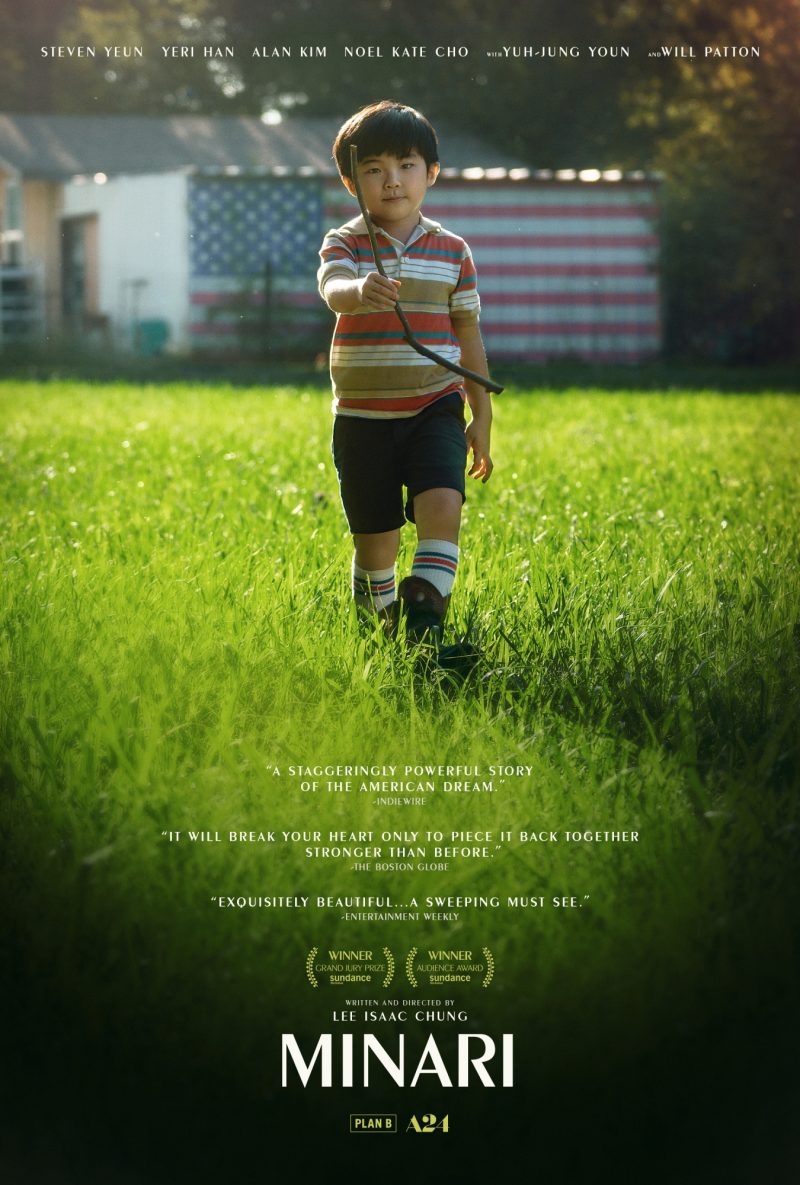Tuesday: My "take" on a film.
Minari (2020)
"This is the movie we need right now." ~Los Angeles Times
Local theaters re-opened after a too-long pandemic shutdown and what better way for me to celebrate than to go see a movie written and directed by an alumnus, Lee Isaac Chung!
He graduated from the university three years before I stepped onto campus, but was already making a name for himself, and I met him when he returned to receive a Distinguished Alumni Award. What I remember most about our conversation was his kindness and encouragement.
I was over-the-moon excited when his recent film was nominated for six academy awards!!
It's a semi-autobiographical film portraying a Korean-American family that moves to a farm in Arkansas. Although the family has been in America for a while, they had been living in an urban area in California and now struggle to adjust to an almost isolated rural life.
At the beginning of the film, as the family drives on a highway past country landscapes, I recalled similar scenes viewed from my own family's station wagon during our many moves, and felt immediately drawn into the story.
Minari is well-directed, well-shot, and has a superb cast. The characters are sometimes framed in close-ups, creating an intimate connection, and when the film ended I felt like I was walking away from loved ones.
Yuh-Jung Youn won the Oscar for Best Actress in a Supporting Role for this film. She portrays Soonja, the grandmother... a wonderful character. She's not like a so-called "real" grandma, according to her grandson David (Alan S. Kim). He insists she smells like Korea, and tells her...
DAVIDGrandma, you're not a real grandma.SOONJAWhat is a real grandma?DAVIDThey bake cookies! They don't swear! They don't wear men's underwear!
In another scene, the grandmother plants minari (sometimes known as Korean watercress) near a stream and describes to David...
SOONJAMinari is truly the best. It grows anywhere, like weeds. So anyone can pick and eat it. Rich or poor, anyone can enjoy it and be healthy. Minari can be put in kimchi, put in stew, put in soup. It can be medicine if you are sick. Minari is wonderful, wonderful!
The story moves at a slow but steady and purposeful pace with conflict arising from farming, marital, familial, cultural, health issues--life!--and, like the plant, the family needs to be hardy and resilient.
Echoing Soonja's words, Minari is wonderful, wonderful!
Trailer
Notes on content:
- No sex or nudity.
- No violence, but some injury-related blood is shown.
- Infrequent mild profanity. No f-words, but a teen flashes a middle finger at an adult. An anatomical-correct word is used regarding a body part, as well as a slang term.


No comments:
Post a Comment